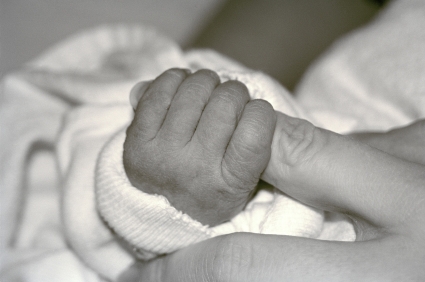
Reading the Psalms can often feel like you are viewing pages ripped from David’s diary. You get the “inside story” as you eavesdrop on his prayers. Instead of simply reading about what happened, you get glimpses into the heart of the man that endured it.
Several of the Psalms of David are written as he is running from King Saul. In this time between his ordination and his coronation, as my pastor likes to call it, David knew that he was rightfully the king. However, his predecessor wasn’t eager to hand him the keys to the kingdom. In fact, King Saul was intent on hunting down and killing David ensuring that Saul’s son, and not David, would be the successor. Having once obtained a position of honor in the king’s house, David was now on the run. His comrades were the ragamuffins and outcasts, people who, like him, were not acceptable in “polite” society (I Sam. 22:2).
As David evades captures and waits for the time when he will wear the crown that is rightfully his, it must have been tempting to wonder if the prophecy about his rule would ever come to past. After all, hiding in caves and camping out with the enemy weren’t exactly kingly activities. I wonder if David worried about his reputation or whether he was too busy simply trying to stay alive. If he were to be king one day, as Samuel had pronounced and God had promised (I Samuel 16:1-13), would anyone take him seriously – this misfit and loser?
While we might suspect that these questions would permeate David’s mind, the Psalms give us a much different perspective. As we peer into his heart, we see that David was not fretting over whether God’s promises would come to past. Instead, despite the many potential reasons for despair, David remained confident in what was to come. We see a prime example of this in Psalm 59:10 when David writes:
My God in his steadfast love will meet me;
God will let me look in triumph on my enemies.
Earlier, in Psalm 57:2-3, David additionally proclaims:
I cry out to God Most High,
to God who fulfills his purpose for me.
He will send from heaven and save me;
he will put to shame him who tramples on me. Selah
God will send out his steadfast love and his faithfulness!
Read these carefully and what you’ll see is that David is sure of what is to come. He knows what God has promised him and he believes that those promises will come to past. He is not concerned that his enemies will triumph; he knows his eventual victory is secured in the Lord. Because God has vowed to him that he would be king, he knows that one day he will be so.
While it may seem easy to look at the situation retrospectively and say “Well of course David would be confident; he became king!” what we must remember is that David was not given a timeline or an itinerary of when these events would take place. As far as we know, he was unaware of whether his time in the wilderness would be short or long. His temporary conditions didn’t shake his permanent confidence in God. He lived with the promises that God had made him firmly in his sight. He focused on what was sure, even in the midst of a lot of uncertainty.
David was given specific promises and eagerly waited for their fulfillment. In a similar way, Scripture is replete with promises for the children of God. We would do well to live with these promises firmly in our sight. We should constantly refer back to them, reminding ourselves of the good that God has in store. We should be encouraged that no temptation will face us for which God has not provided a way of escape (I Cor. 10:13). We should be emboldened to share what God has given us, knowing that He has promised to provide all our needs (Phil. 4:19). We should be passionate about doing the work that God has called us to, persevering through trials and difficulties, knowing that one day He will reward us with eternal commendations (Jam. 1:12). In other words, just like David lived his life with the constant awareness that God had a future plan for him, we should live our lives with a similar mindset. God is molding the lives of His children to bring about our good and His glory (Rom. 8:28). Even on the days when it feels like we’ve been abandoned to a cave, that the enemy surrounds us and there is no feasible way to escape, we should be encouraged that nothing will thwart God’s purposes (Job 42:2). We can live with the surety of His promises being fulfilled. We can have confidence that on the near or far horizon what He has vowed to us will come to fruition.
